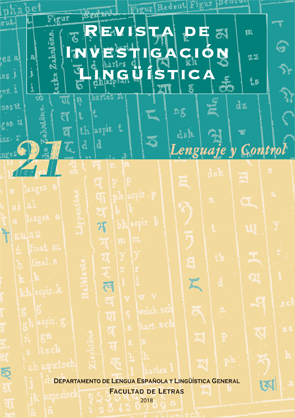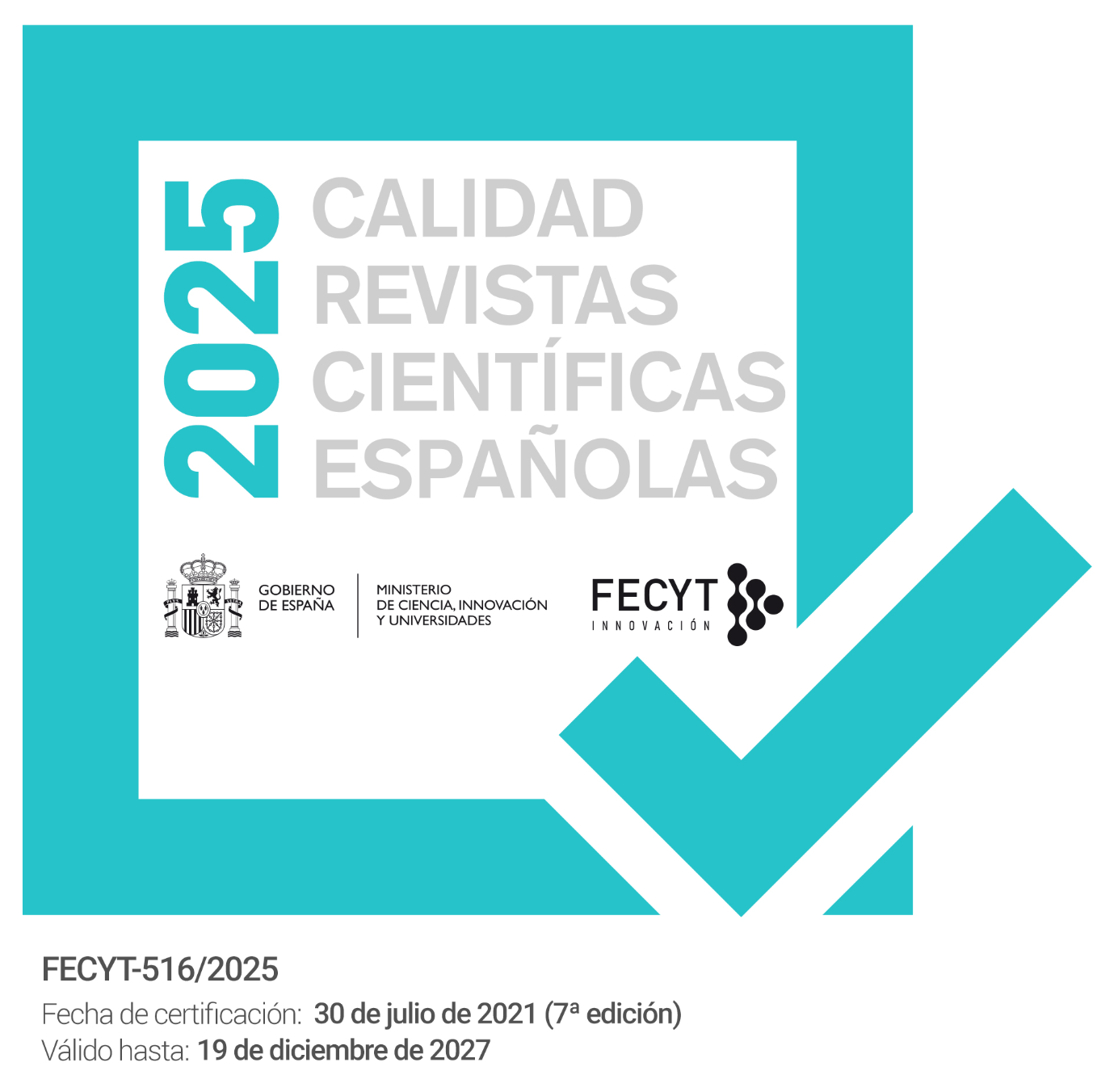Anglicisms and gallicisms in the origins of the language of boxing
Abstract
The language of boxing was formed in Spain in the early twentieth century, when this sport started up. The informations and the sport chronicles featured in the newspapers at the time, the madrilian ABC and The Mundo Deportivo of Barcelona, were the basis to elaborate the corpus of anglicisms and gallicisms which entered of the first third of the century to designate technical and specific concepts of this sport. It is considered the moment of incursion of these neologisms, its use and survival. It was in the first third of the century when a greater number of foreign expressions entered, which would later consolidate, adapt or disappear.
Downloads
-
Abstract1280
-
PDF (Español (España))1409
References
(ABC). ABC (1903-2017). Incluye (ByN) Blanco y Negro (1891-2000). hemeroteca.abc.es
(MD). El Mundo Deportivo (1906-1999). www.mundodeportivo.com/hemeroteca. (E). Excelsior (1927). htpp://www.liburuklik.euskadi.net/.
AGULLÓ, Recaredo (2003): Diccionario Español de términos deportivos. Madrid: Espasa Calpe.
ALFARO, Ricardo J. (1970): Diccionario de anglicismos. Madrid: Gredos.
CARDELLS MARTÍ, Francesc y Carlos GENER GALBIS (2004): “Historia, lenguaje y hecho deportivo: consideraciones a propósito del boxeo”. Comunicación y Estudios Universitarios. 12, 41-50.
CARBONELL, Pedro (1900): Teoría y práctica de la esgrima. Barcelona: Sucesores de Rivadeneira.
CASTAÑÓN RODRÍGUEZ, Jesús (2004): Diccionario terminológico del deporte. Gijón: Trea.
CASTAÑÓN RODRÍGUEZ, Jesús, Emilio Tomás GARCÍA MOLINA y Edmundo LOZA OLAVE (2005): Términos deportivos en el habla cotidiana. Logroño: Universidad de La Rioja.
CEBRIÁN BONÉ, José Luis (dir) (1989): La gran enciclopedia de los deportes olímpicos, Barcelona: Ediciones del Drac, vol. 3.
CURELL AGUILÀ, Clara (2009): Diccionario de galicismos del español peninsular contemporáneo. Strasbourg: Éditions de Linguistique et Philologie.
FERNÁNDEZ GARCÍA, Antonio (1972): Anglicismos en el español (1891-1936). Oviedo.
LORENZO, Emilio (1996): Anglicismos hispánicos. Madrid: Gredos.
MIQUELARENA, Jacinto (1934): Stadium (Notas de sport). Madrid: Espasa Calpe.
PRATT, Chris (1980): El anglicismo en el español peninsular contemporáneo. Madrid: Gredos.
REAL ACADEMIA ESPAÑOLA (2014): Diccionario de la lengua española, 23.ª ed. Madrid: Espasa.
RODRÍGUEZ FEU, Francisco (1987): El boxeo como deporte y profesión. Barcelona: Hispano Europea.
RODRÍGUEZ GONZÁLEZ, Félix (2012): “Anglicismos en el mundo del deporte: variación lingüística y sociolingüística”. Boletín de la Real Academia Española. Tomo XCII, Cuaderno CCCVI, 317-341.
—— (2013): “Pseudoanglicismos en español actual. Revisión crítica y tratamiento lexicográfico”. Revista Española de Lingüística. 43/1, 123-169.
—— (dir.) y Antonio LILLO (1997): Nuevo diccionario de anglicismos. Madrid: Gredos.
SÁNCHEZ GARCÍA, Raúl (2009): “Boxeo y proceso de civilización en la sociedad española”. Apunts: Educación Física y Deportes. 96, 5-13.
VÁZQUEZ-AMADOR, María y M. Carmen LARIO DE OÑATE (2015): “Anglicismos en la prensa deportiva de principios del siglo XX y XXI: Estudio contrastivo”. Epos. XXXI, 359-374.
VIADA, Antonio (1903): Manual de sport. Madrid: Adrian Romo editor, 685-705.
The works published in this magazine are subject to the following terms:
1. The Publications Service of the University of Murcia (the publisher) preserves the economic rights (copyright) of the published works, and favors and allows the reuse of same under the license of use indicated in point 2.
2. The papers are published in the electronic edition of the magazine under a Creative Commons Attribution-NonCommercial-NoDerivative 3.0 Spain license (legal text). Papers may be copied, used, disseminated, transmitted and publicly exhibited if the following requirements are met: i) The authorship and the original source of its publication (magazine, editorial and URL of the work) must be cited; ii) The works cannot be used for commercial purposes; iii) The existence and specifications of this user license must be explicitly mentioned.
3. Self-archiving conditions. Authors can electronically disseminate pre-print versions (version before being evaluated) and / or post-print versions (version evaluated and accepted for publication). This makes possible its circulation and diffusion earlier and with it a possible increase in its citation and reach among the academic community. RoMEO color: green.










